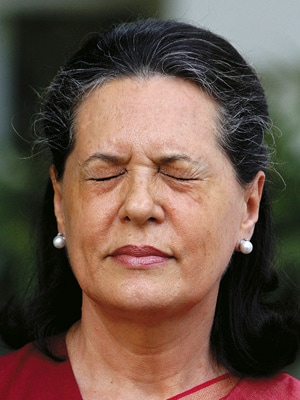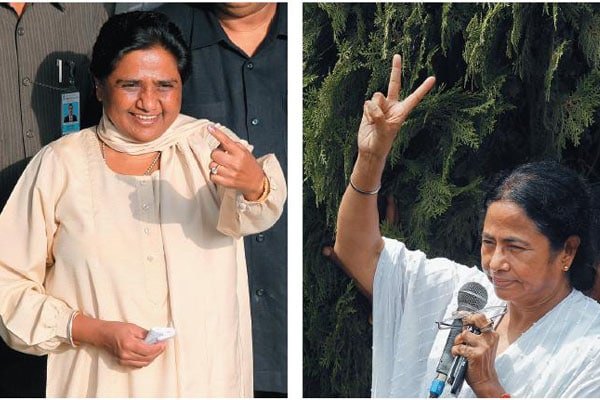
Congress: Sorry For The Interruption
The UPA remains a prisoner to coalition politics. And yet, the Congress has a lot of headroom for manoeuvre because no party wants an election now
“For the Indian economy, this was a year of recovery interrupted”
– Pranab Mukherjee, opening the budget speech on March 16, 2012.
Interruption has been a recurring theme of the United Progressive Alliance (UPA) government’s second term that it so convincingly secured with a resounding people’s mandate. Parliament sessions have been constantly interrupted, corruption scandals have seized up the functioning of the executive and policymaking has been sputtering for over two years now.
Ever since it returned to office in 2009, the UPA has remained a prisoner to “coalition compulsions”, the phrase Prime Minister Manmohan Singh and his colleagues frequently invoke to brush off charges of executive inertia and political arrogance. But what happened in the current budget session was unprecedented and points to the absurdity of coalition politics.
Never in the history of India has a sitting railway minister been heckled by his own party for presenting what popular consensus defined as the single most progressive policy statement in the dreary run of this government. According to sources close to Trinamool Congress (TMC) leader Mamata Banerjee, the party has bullied the UPA leader Congress Party to remove Dinesh Trivedi as railway minister and appoint a loyalist in his place. Congress is believed to have bought time until Pranab Mukherjee had presented his Budget and Parliament went into recess.
Chatter in political circles suggests that the Congress Party is trying to rope in Mulayam Singh’s Samajwadi Party (SP) as insurance in case Mamata Banerjee decides to pull the rug. That is, however, not as easy as it appears. The UPA is already supported from the outside by the SP and Mayawati’s Bahujan Samaj Party (BSP). There is no guarantee that the BSP will continue its support if arch rival SP joins the government. If the TMC and BSP both withdraw support, smaller parties with single digit strength in Parliament will become crucial to the UPA’s survival. But TMC has so far maintained that it will stay the course with the alliance. After all, TMC has its own compulsions as the party ruling Bengal. Understanding TMC’s functioning also would show how irresponsible regional allies put the larger national interest in jeopardy.

Pawan Kumar / Reuters
THE SAVIOUR? The Congress is trying to rope in Mulayam Singh’s Samajwadi Party as insurance in case Mamata Banerjee decides to pull the rug
Banerjee’s pro-poor economic plank has cornered her into a position where she would not brook any policy that can be perceived as against her manifesto. For instance, she is said to have instructed banks in the state to not accept land as collateral because that is often the only asset that poor farmers have. This has led to a peculiar situation of people not being able to raise money even in dire need.
The policy-paranoia has led to an investment freeze in Bengal. The National Thermal Power Corporation, which wanted to invest in the state, had to shelve its projects since the company was unable to acquire land. “It is next to impossible to buy land directly from the farmers without the support of the government. None of the land was owned singularly and the presence of share-croppers made it impossible,” said a company official on condition of anonymity. Software company Infosys is said to be backing out of the state because it could not get an SEZ status. The TMC manifesto rejects SEZs in any form.
“It is easy to be populist, but an administrator’s job is also to keep in mind the larger good of the state,” says a senior state cabinet minister who had made certain suggestions to increase revenues but was overruled. Such policies have ensured that Bengal is in deep economic trouble.
“About 60 percent of the [state’s] money goes into payment of salary and pension bills. The rest into payment of interest for the loans that were taken by the previous state government, leaving no room for any development work,” says an official of the finance department.
With no new ways of revenue generation, Banerjee has been asking the Central government for a special economic package to shore up state finances. Yet she has declined to take responsibility for fiscal consolidation. “We have been asking for a roadmap for fiscal consolidation, and also advised the state government on increasing its revenue generation by increasing certain taxes, which they did not agree,” says an aide to the finance minister. “The Central government cannot go on bailing out the state and fund their populist expenditures,” he said.
A restructuring of the UPA is not going to remove the fundamental problem of the coalition where smaller parties would continue to extort the Congress Party. The rout in Uttar Pradesh elections and poor show in Punjab, Goa and Uttarakhand has also weakened the Rahul Gandhi alternative within the Congress. It has also brought old guards like Ahmed Patel back into action—he has been in the thick of backroom manoeuvres in the Trivedi crisis.
While it will be the party that will be negotiating treaties with other political groups, the obligations will befall the government to execute—in the form of sops or going easy on CBI cases, which are often used as leverage in political deals. In his rare interaction with television editors last year, Prime Minister Singh had hinted that the goods and services tax (GST) was held up because Gujarat Chief Minister Narendra Modi wanted criminal cases dropped against his colleague Amit Shah. There is hardly any opposition to GST within the BJP. However, no BJP leader dare oppose Modi, who is positioning himself to be the party’s prime ministerial candidate.
Yet, the Congress has a lot of headroom for manoeuvre because no party wants an election now. The BJP is in a position similar to that of the Congress. If polls were to be held today, both the national parties will be in dire straits. None of the other parties are keen for mid-term polls either, as fighting a national election is quite a different ballgame compared to state polls and requires huge resources. War chests in big states like UP and Punjab are already depleted and replenishing them will take time.
Banerjee’s efforts to cobble together a coalition that could be a national alternative to the NDA and UPA have also not had any traction yet.
For the moment, the Congress is likely to accept Mamata’s demand for replacing Dinesh Trivedi and try to complete the term somehow. That does not mean there could be no more crisis. From here on, every one will be girding up for elections. You never know when it will happen. It will be no surprise if the uncertainty lingers on for another two years.
(Additional reporting by Archisman Dinda)
(This story appears in the 30 November, -0001 issue of Forbes India. To visit our Archives, click here.)






